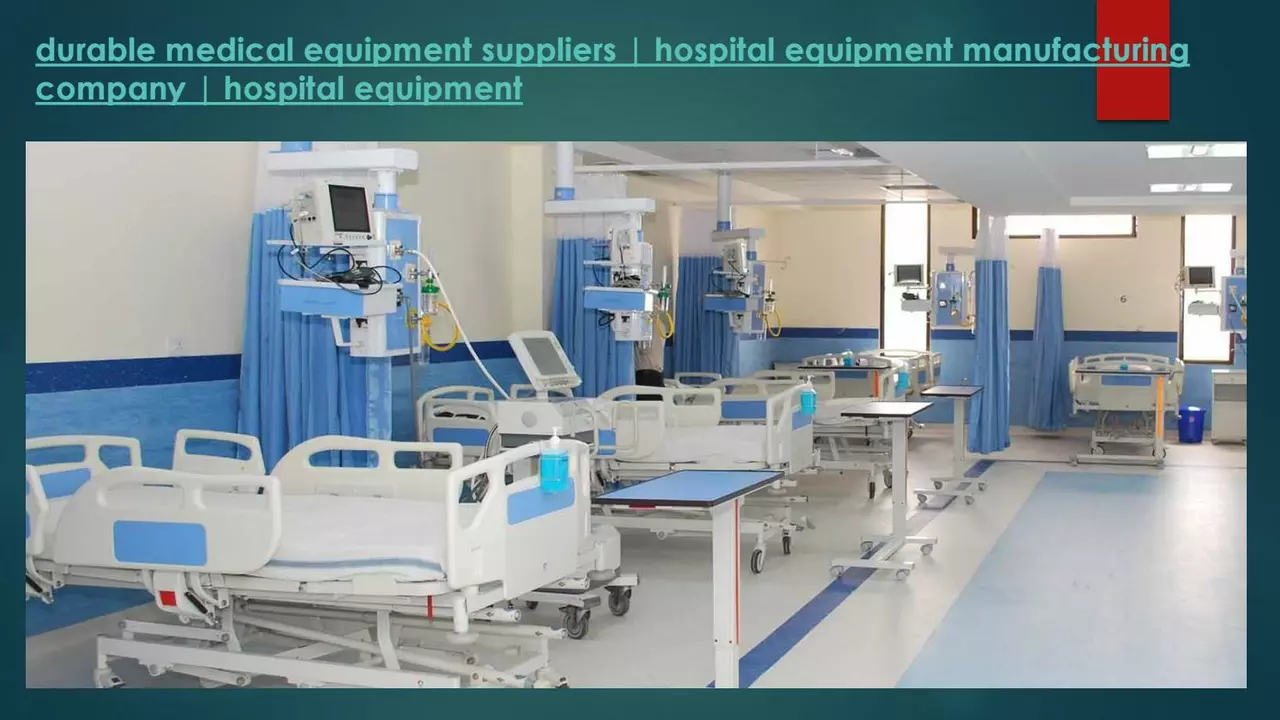
Understanding the Need for Better Purchasing Methods
Now, I'm just a simple lad named Caden who loves to blog about stuff like this, but I'm pretty sure you'd agree with me on this - medical equipment is quite a delicate matter. Hospitals just can't go around buying equipment in the same way a kid buys candy from a candy store. No siree, there's much more to it than that. Now I'm not a medical professional, and to the best of my knowledge, I haven't accidentally swallowed a stethoscope. However, I can offer some perspective on how hospitals could do a better job when it comes to purchasing medical equipment.
You see, every piece of equipment plays an essential role in the hospital setting, be it as simple as a thermometer or as complex as a CT scanner. Therefore, the procurement process requires more attention, more planning, and more strategic thinking, and that's pretty obvious isn't it? Just imagine a hospital using a malfunctioning ventilator. Wouldn't that be as useful as a chocolate teapot?
Analyzing the Current Purchasing Behavior
The purchasing behavior of hospitals has been a topic that has piqued my interest for quite a while now. Call me weird if you want; I won't hear you anyway. The thing is, purchasing medical equipment is not the same as buying your groceries. You can't just pick up a MRI machine next to the oranges and be done with it. There's a lot of research, negotiation, and decision-making involved.
Know what else there's a lot of? Mistakes. Yes, yes, I know, we're only human, and making mistakes is a part of life. But when it comes to lives of patients, the scope for errors should be as little as stocking Christmas candies in July. This realization has led me to delve deeper into the pit, or as we bloggers like to call it, "the rabbit hole", of medical equipment buying habits.
Incorporating Technology in Purchasing Methods
Let's start the tech talk, shall we? No, I'm not talking about the latest iPhone, even though I do appreciate a good, crisp Apple logo every now and then. I'm referring to technology in the medical procurement process. Now, let's be real. In the era where finding a life partner is just a swipe away, surely tech can help hospitals in their purchasing venture, right? Yup, it sure can, and it's a surprise that many institutions have not caught up
Imagine the possibilities here. You could easily track inventory, manage the purchasing process, and keep up with maintenance schedules, all on a slick piece of software. Hey, it might even send you a reminder to replace that decade-old EKG machine that has been overworked more than a washing machine in a college dorm room.
On Consulting With Professionals
Bless me with your attention for a jiffy, grand folks. I'm about to drop some wisdom on you like your science teacher dropping those chemicals in science class (we remember you, Mr. Stinky!). The best person to ask about an elephant isn’t the lion. Though I respect their ability to take down an elephant, know who you really should be talking to? Knowledgeable professionals like equipment consultants. That's not to say that amateur advice should be discarded like last year's Christmas tree. But there's a higher level of depth, experience, and expertise that professionals bring to the table.
On a related note, please let me paint a scenario for you. Have you ever landed in a swamp while trying to locate a particular product online? Yes, the World Wide Web is a wonderful place, but at the same time, it's as vast and as intimidating as a black hole (Don't ask me how I know). Consulting professionals really takes away the weight from your shoulders to sieve and compare all the available options out there.
Accounting for After-Sale Support
Think about this for a moment. You buy a shiny new car, enjoying the new car smell and all its wonders. A few days later, something breaks down. You're left stranded, and with your car being as functional as a chocolate sundial. If this scenario gives you even the smallest heartache, imagine what happens when a significant piece of medical equipment breaks down.
That's why after-sale support is so crucial. 'Cause it doesn't matter if you got the snazziest and latest machine. If it breaks, and there's no support afterward, you're left with a very expensive and useless hunk of metal. Investing in companies that provide after-sale services and maintenance is key. So, assemble your squad of trusted suppliers who've got your back no matter what!
Final Thoughts on Better Purchasing Methods
Before we wrap up, let's take a quick recap, shall we? In the high-stakes arena of hospital procurement, there's no room for mischief. It's all about making strategic decisions, utilizing modern technology, consulting professionals, and investing in products with good after-sale support. Remember, you're not just purchasing medical equipment; you're investing in the well-being of every patient that walks (or is rolled) through the hospital doors.
Alright, that's all from me, folks. Remember, the world is our oyster, and every pearl of wisdom is ripe for the plucking. Now, if you'll excuse me, I have a cup of coffee waiting for me. Ah, the simple things in life!
Write a comment